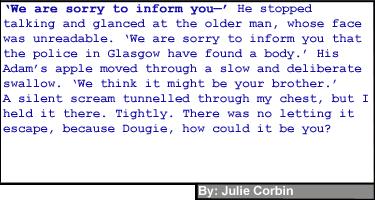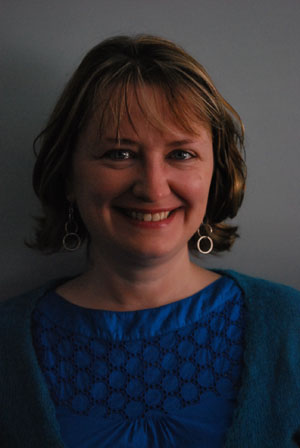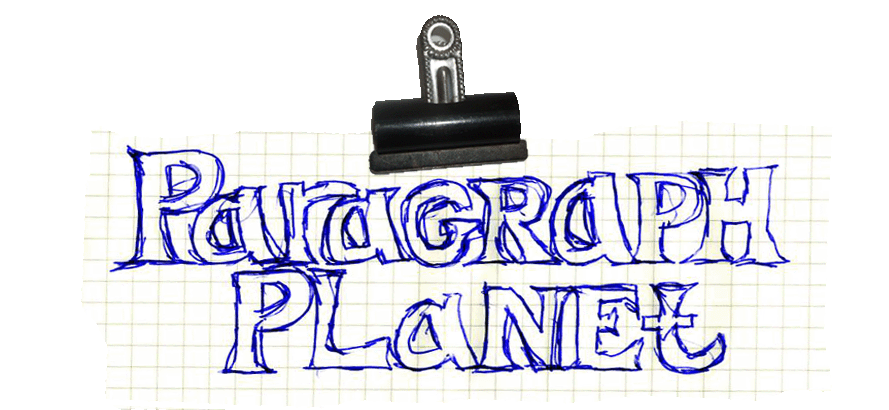Julie Corbin
Julie talks to Paragraph Planet about her novel 'Now that you're gone'

Now That You're Gone begins with Isla McTeer's brother's body being pulled out of the River Clyde. Evidence suggests that his death was accidental, but Isla refuses to believe this. She spends the novel trying to find out what exactly happened to him.

What's your favourite part of the writing process?
All four of my novels have begun with a single image that pops, uninvited, into my head. When this image keeps recurring, I have the itch to describe it. Next comes the story and I enjoy the process of finding my way into the narrative. I do very little planning. I have a rough idea as to how the story might develop and then I begin writing scenes. It means I often take myself up blind alleyways but I enjoy that sense of possibility before the second draft demands that it all makes sense!
How important is setting in your novels?
I think setting is important because it thickens the mixture, reinforces the rhythm and supports the tone. With the fourth novel, I returned to Scotland, to an area outside Edinburgh, less than ten miles from where I was brought up. It's the perfect place for Isla to live because she is betwixt and between - neither living in the city nor full-on countryside - and I think this mirrors her own sense of feeling like she is being kept outside of the truth.
How important is being good at marketing to the novel process?
Marketing is really important because the market is crowded, books are discounted and publishers want volume sales. Getting your novel noticed takes time and effort, regardless of how good it might be, so publishers are pleased when writers play an active role in promoting their own work. I enjoy talking at book groups, library events etc. but I'm less able when it comes to promoting myself online through blogging, Twitter etc. I'm always pleased when generous people like yourself ask me to contribute to their website as I find self-promotion is always at the bottom of my list!
 Any tips for aspiring writers?
Any tips for aspiring writers?
Ask yourself if you really want to write. Do you want to spend hours writing when you could be socialising or walking in the countryside or learning how to grow vegetables?
If the answer is yes - writing really does float your boat - then set aside some quality time, even just fifteen minutes every day. Write. Keep writing. Think about your characters when you're on the bus or emptying the washing machine or filling your car with petrol so that when you sit down to write your story will be alive in your head and easier to translate onto the page.
Know you are in it for the long term. Success won't come overnight.
Factor a writing course or two into your year. Improve your technique. Learn to take criticism. Make writing friends.
Most of all, enjoy the journey. Publication is great but it's not the be all and end all. The thrill really is in the writing.
Julie's website can be found here.
Paragraph Planet is a creative writing website which has been publishing one 75-word paragraph every day since November 2008. Famous authors, aspiring writers and occasional dabblers have all got involved, submitting a mixture of twist-in-the-tale flash fiction, evocative short, short fiction, openings of published novels or brief moments captured. Get involved here. You can read over 2000 examples in the archive section. There are also interviews with some of the published authors who have submitted to the site, as well as an authors page in which you can read an example paragraph from all authors who've submitted, and also link to dedicated pages with more info about regular contributors. There's also a Blog Directory of authors who've contributed to the site.



 Support Me on Ko-fi
Support Me on Ko-fi


